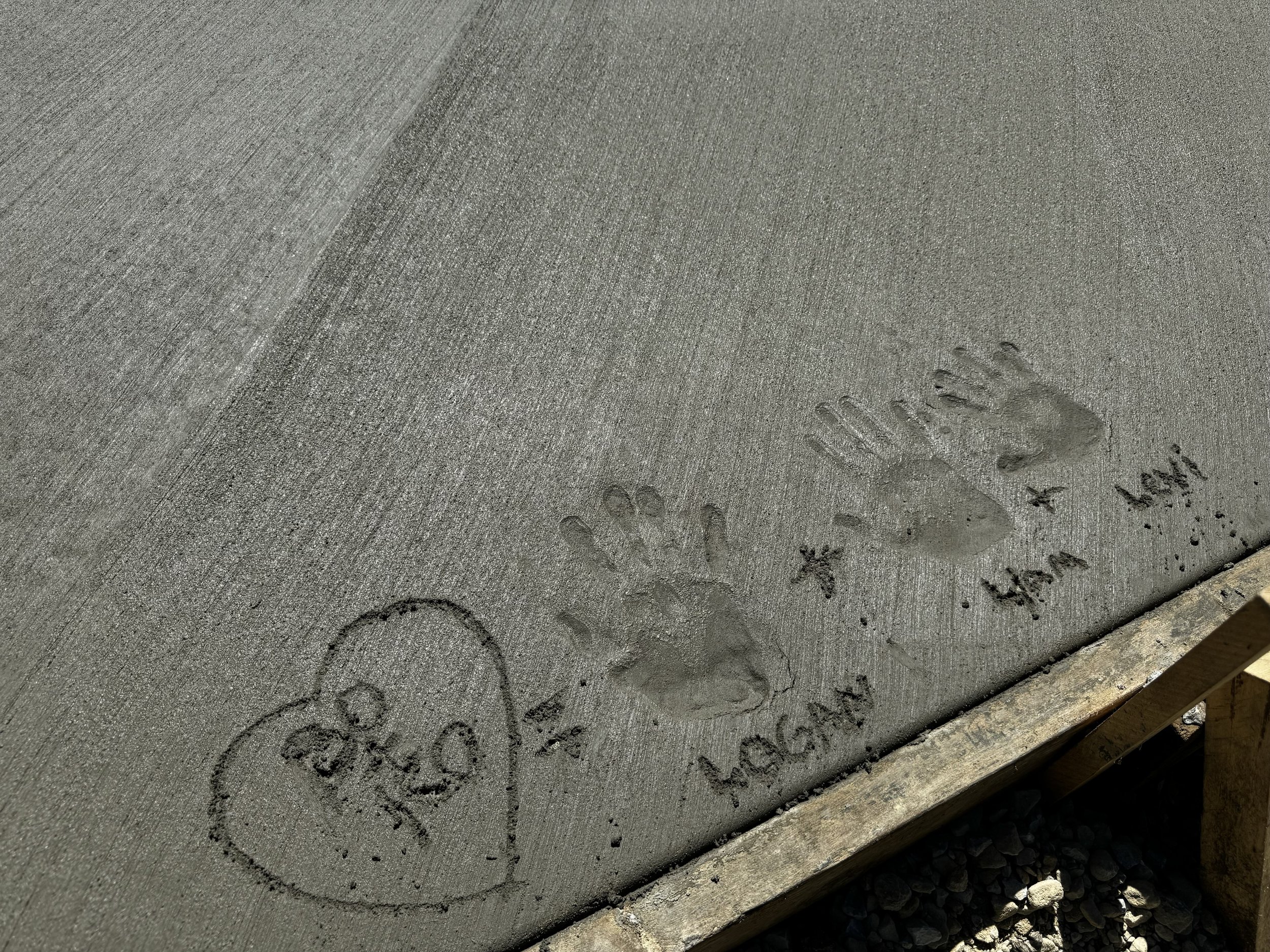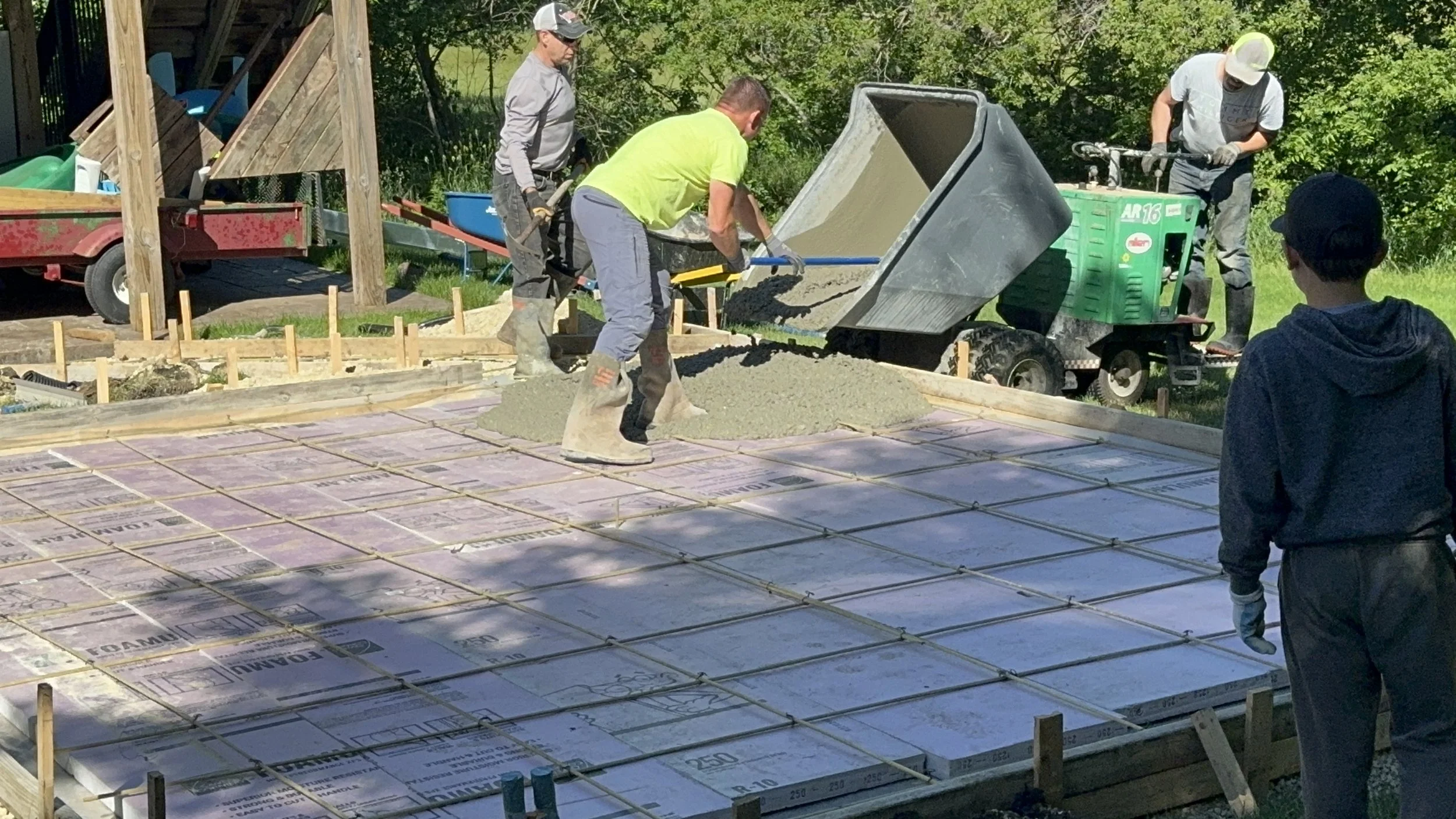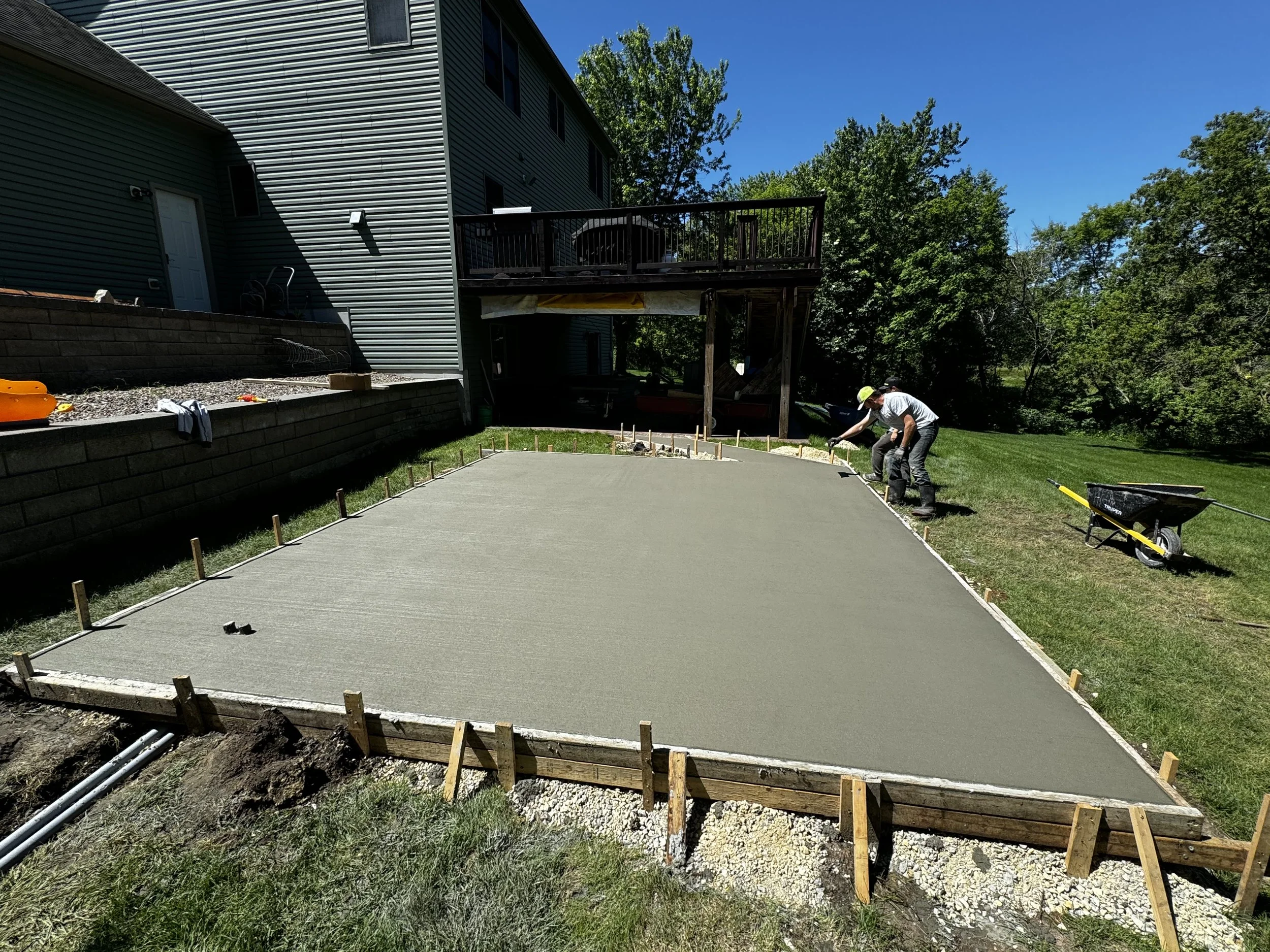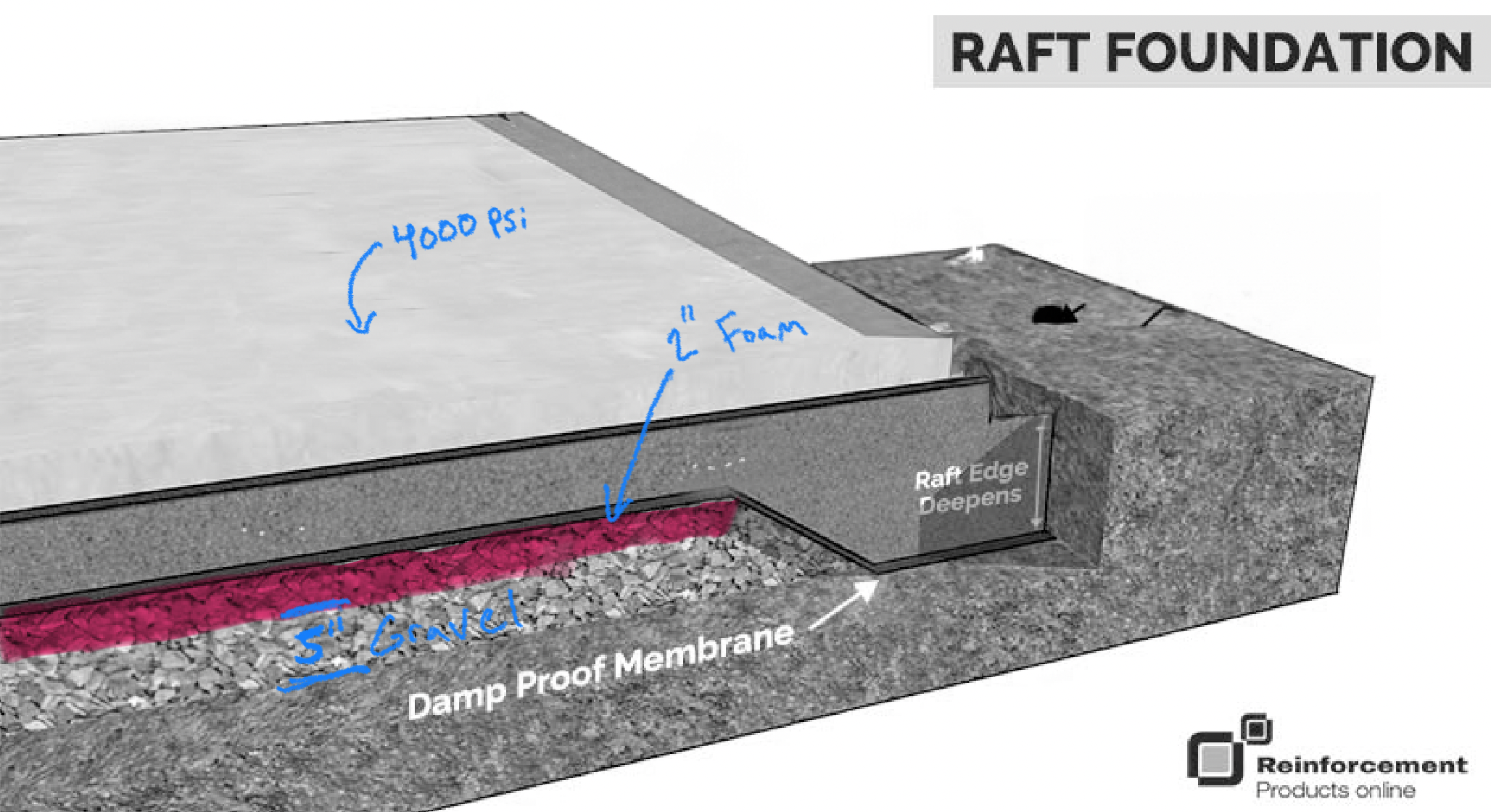A Solid Shed Foundation
Hey there, and thanks for joining us as we embark on the exciting journey of building own very own studio office shed. But before we dive into framing walls and hanging up shelves, let's talk about the foundation – the unsung hero of any sturdy structure. A solid shed foundation is crucial for durability and longevity, ensuring the office shed stands the test of time. Here are three of the most common bases we considered:
First up, we have the classic cement slab. This robust option provides excellent support and stability, making it ideal for heavy-duty storage or work sheds. In addition we can add insulation and a vapor barrier to help keep our floors dry and warm. Next, we have the gravel base, perfect for smaller sheds or areas with poor drainage. It's cost-effective and relatively easy to install, offering decent support while allowing water to drain away. And last but not least, we have the concrete blocks or piers, a versatile option suitable for various shed sizes and terrains. They provide elevation and support, keeping your shed off the ground to prevent moisture damage.
Now, let's talk about why the cement foundation reigns supreme, especially for a studio office shed. Picture this: you're turning your shed into a cozy workspace where creativity flows freely. A cement foundation provides unmatched stability, ensuring a level surface for your desk, shelves, and equipment. Plus, it offers superior insulation against temperature fluctuations, keeping your workspace comfortable year-round. With a cement foundation, you're investing in a solid base that not only supports your shed but also enhances its functionality, making it the perfect retreat for work or relaxation. So, roll up our sleeves, grab some tools, and let's lay the groundwork for a solid foundation!
So, first up hiring a cement contractor. Here's the scoop on what to keep an eye out for when you're on the hunt. First things first, let's talk experience – you want someone who knows their stuff, right? Look for folks who've been around the block (pun intended) and have a solid portfolio to back it up. Oh, and don't forget about the paperwork – make sure they're licensed and insured, because hey, better safe than sorry, am I right? When they hand you that estimate, take a peek at the fine print and make sure everything's crystal clear. I think one of the most important things to consider when selecting a contractor is communication. If they are terrible communicators before you hire them you not going to get started on the right footing.
We we lucky enough to find and work with Vlad. He was very straight forward to work with and made sure to provide an accurate quote for our needs. Spring in Minnesota can be volatile and this spring was no different. That’s where the communication really comes to play. Being able to coordinate schedules for a project around the weather can be tricky, but working with Vlad and his crew we were always in the loop.
“working with Vlad and his crew we were always in the loop.”
Building the Perfect Cement Pad for a Backyard Studio Office Shed: Express time lapse
2” of Foam, 5” of gravel minimum of 4” Concrete and edges deepen to 12-18”. Concrete is a 4000 psi Exterior mix






